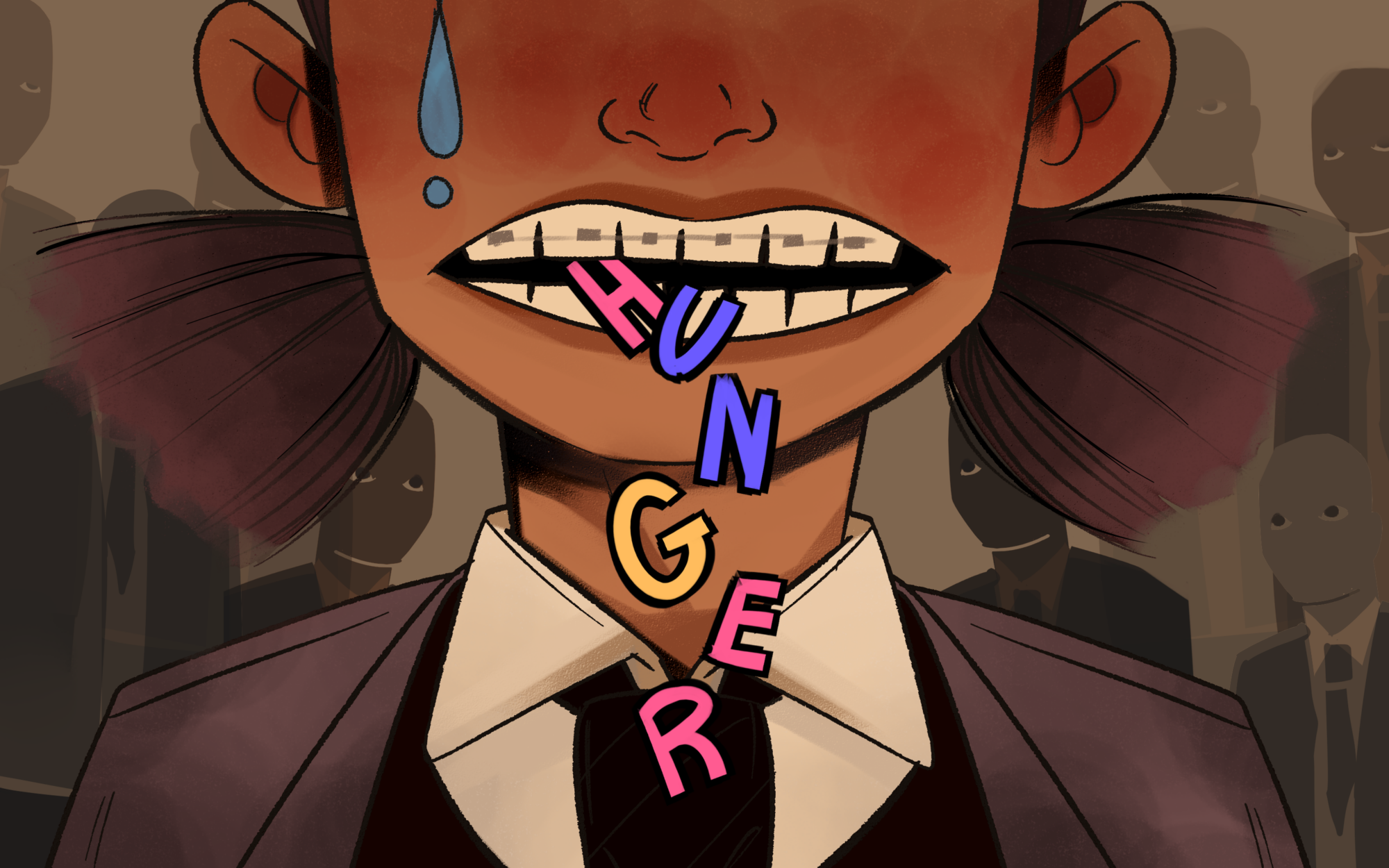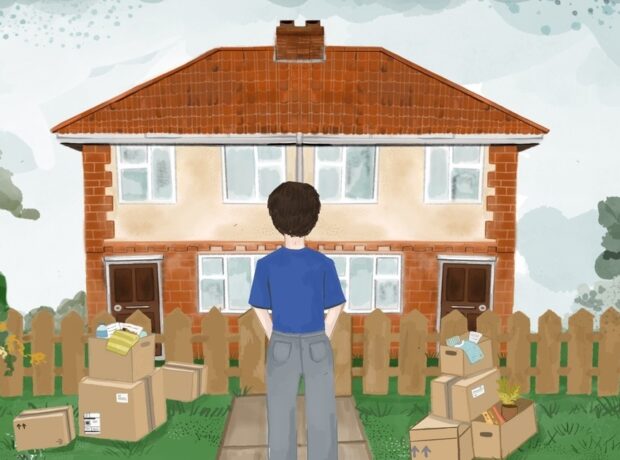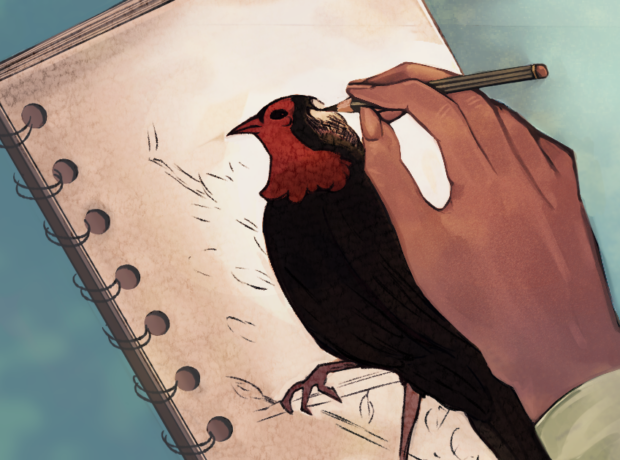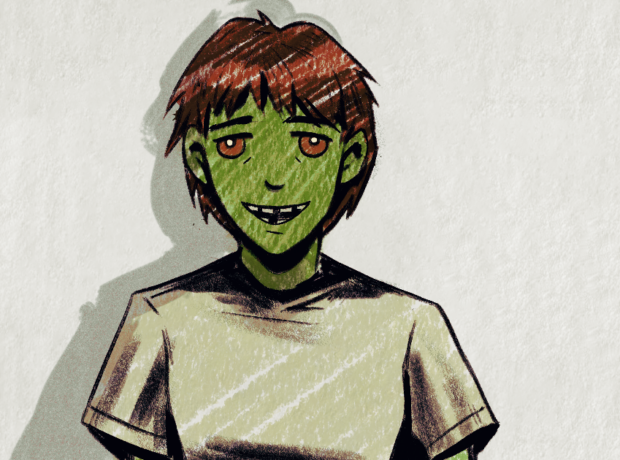Seventeen-year-old Ellie Beckett shares her experience of free school meals, including feelings of stigma and shame. As the UK faces its worst cost-of-living crisis in 40 years, she asks why footballers are campaigning for child rights and against food poverty, while MPs turn away.
Ellie Beckett is the winner of the University of Warwick’s sixth annual Writing Wrongs Schools’ Competition, organised by the Centre for Human Rights in Practice. This is her winning article which she reworked with Lacuna Magazine during a paid summer internship.
Across England, 1.9 million children are eligible for free school meals because they are living in poverty. It’s a statistic that is difficult to digest. And the Covid pandemic and cost-of-living crisis are making it worse.
As one of the 1.9 million, I witness first-hand the media and the government’s neglect of young people’s views about young people’s issues. It’s easy to quote statistical reports, but the fact is, these numbers have faces and voices and they deserve to be seen and heard.
In the fifth richest country in the world, the next generation of workers are going hungry, and social stigma leaves us too embarrassed to talk about it or to ask for more.
And so, we are unified only by this terrible triad: shame, hunger, and disappointment.
Shame
I remember overhearing my parents’ conversation that day. Their low muffled voices coming from the kitchen. When my curiosity took me into the room, I found myself speaking in the same hushed tones, asking quietly: ‘What will that mean?’
My dad had been made redundant, and my mom’s wage would be stretched too tightly to cover our costs, so we had to tighten our belts and that meant relying on benefits.
I was 15 and, like any other teenager, I just wanted to fit in. The last thing I wanted was to be seen as different, to be ‘othered’. So, I didn’t tell anyone.
When it was lunch time, I would eat slowly to make a small amount last longer.
Then after finishing, only half-satisfied, I went to class. I avoided my teacher’s eyes when my stomach rumbled – just in case he knew.
Cafeteria prices can be a source of stigma and anxiety for pupils like me. I’ve seen people being asked to put food and drink back on the shelves because the balance on their cashless catering accounts didn’t cover the cost. I can remember my cheeks flaring red when the dinner lady said I didn’t have enough money to pay for my meal. I get the standard allowance of £2.30 a day. If a pasta pot costs £2 and I can’t buy anything for 30p, that money is lost. I drink tap water.
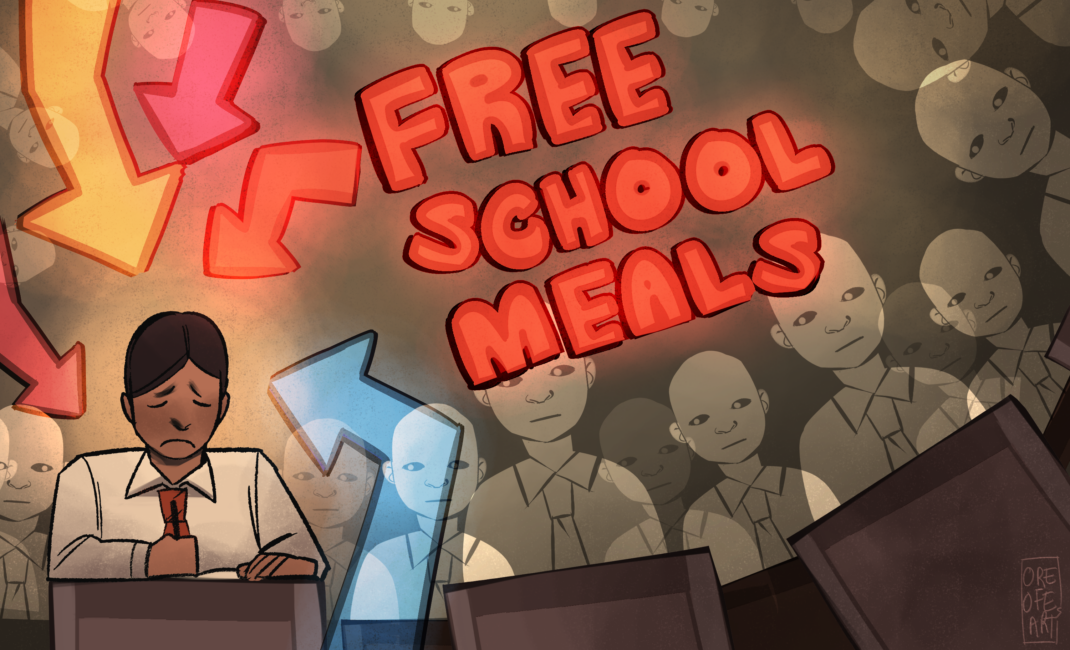
In hindsight I know I shouldn’t have been embarrassed about receiving free school meals. And this became clear to me when I realised that an average of 9 students in my class of 30 are estimated to be in a similar situation. And so, if I hear someone else’s stomach rumble in class, I wonder if they are the second and who the other seven might be. In a weird way, it’s nice to know we’re not alone. And yet, eligibility for free school meals isn’t the easiest dinner conversation.
In truth, at first, I didn’t even tell my friends because I knew they weren’t on free school meals and I didn’t think they’d understand. I bit my tongue when we walked past the Job Centre building, and they made a passing joke.
Not long after that conversation with my parents, I came across a video on YouTube of someone criticising Universal Credit and Free School Meals to add salt to the wound. I read a comment and it felt like someone had just spat on me, as if I were something dirty on the bottom of their shoe:
“These people think they’re married to the state. Lazy, good-for-nothings who won’t get off their arse for anything other than a ciggie or booze. They should spend their drug money on feeding their kids!” Was this what people thought? My teachers? My friends?
Was this harmless passing comment really harmless?
Because it hurt.
While I am fortunate enough to receive state-provided lunches – and I am grateful for it – I also feel the prejudice and social stigma that come with it.
Thinking back now, I know it’s never a child’s place to worry about food or where the next meal will come from. That should be the responsibility of the Houses of Parliament.
Hunger
Article 27 of the United Nations Convention of the Rights of the Child states that every young person is entitled to “a standard of living adequate for the child’s physical, mental, spiritual, moral and social development”. The government has a legal duty of care to provide “material assistance and support programmes, particularly with regard to nutrition”.
After lunch, every school day in the UK some of those 1.9 million children (and some of those who don’t qualify or don’t claim for free school meals but are still living in poverty) begin anticipating their next proper meal, which for many is a nail-biting 24 hours away (72 hours if you count the weekend). With more and more parents struggling to put sufficient food on their child’s plate due to the cost-of-living crisis, this governmental duty appears to be going ignored. Parents face an even greater challenge to put nutritional food on the plate as it’s cheaper to feed kids a 99p microwavable burger than a healthy home-cooked dinner.
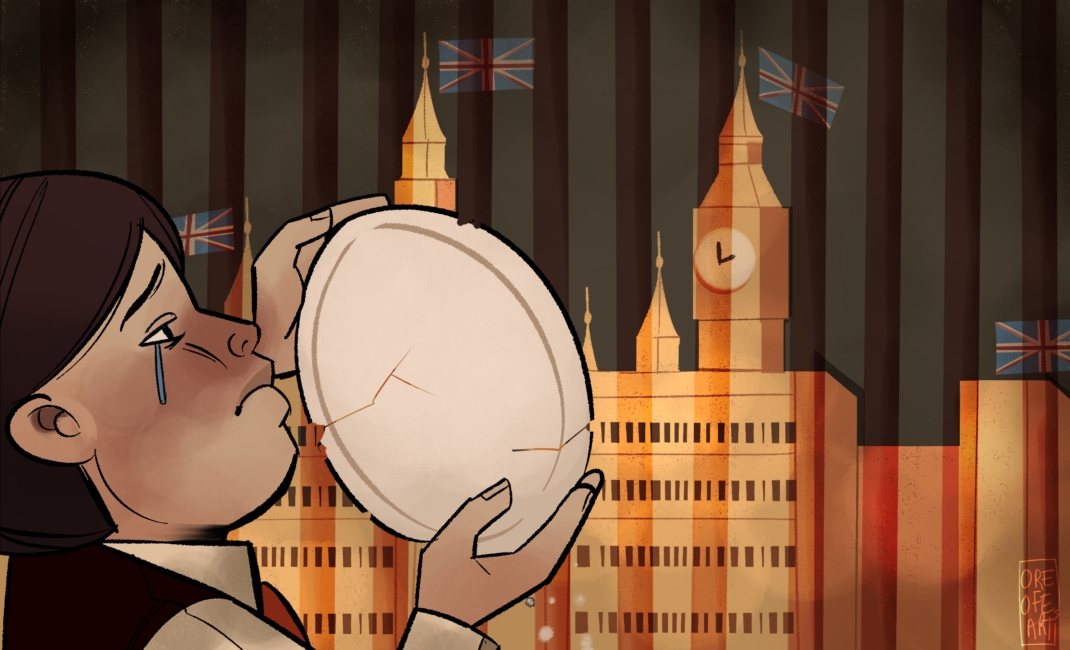
The long wait over a weekend for a nutritional, hot meal in term time is tough. But it is even tougher in the school holidays, especially during the long summer break, when the next free school meal is six weeks away. So, how did hungry children cope in lockdown?
When COVID-19 hit, it exacerbated the country’s weaknesses and revealed an ugly underbelly. The Food Foundation found that the 7.6% of households who were experiencing food insecurity pre-pandemic rose to 9.7% in the first half of 2020. Redundancies, rising taxes, fuel and food prices left families desperate, leading to a plea for free school meals to be extended over the holidays. Why did it take a campaign by a celebrity footballer, Marcus Rashford, who was a recipient of free school meals himself, for anyone to take notice? And why were these desperate pleas voted against by Tory MPs?
Map showing every firm helping with free school meals across the UK after Marcus Rashford’s campaign.
Rishi Sunak (who was then Chancellor) rejected the proposition ahead of the autumn budget in October, claiming that the end of furlough meant other support schemes such as free school meals provision outside of term time, should end too. He said families could rely on holiday and activities clubs instead.
Sunak was just one of 320 Conservative MPs (plus one independent) who voted against extended free school meals across the summer holidays.
After the vote, Marcus Rashford said: “A significant number of children are going to bed tonight not only hungry but feeling like they do not matter because of comments that have been made today.”
Perhaps he was referring to comments like those of MP Ben Bradley who took to Twitter to say that “ever- extending freebies are a sticking plaster not a solution” and that it “increases dependency”. Bradley’s words have pejorative undertones, reinforcing the misconception that free school meals recipients are “sponging from the state”.
This is why we expanded FSM, introduced breakfast clubs, increased school budgets and made the welfare system more generous incl increasing UC during COVID. We’re doing A LOT to help the most vulnerable children, but ever- extending freebies are a sticking plaster not a solution. https://t.co/Bs4MEJDtJF
— Cllr Ben Bradley MP (@BBradley_Mans) October 21, 2020
If the immorality of hungry kids isn’t enough to persuade you how desperately change is needed, there are also worrying long-term effects of hunger on society in general.
Studies have shown that a malnourished child is more likely to be aggressive, hyperactive or depressed in class if they have not eaten enough that day. These conditions disrupt a child’s schooling – with hunger hindering healthy brain development.
These poor school outcomes affect access to higher education and then, to higher-paying jobs. So how can these hungry children escape the inevitability of going on to raise hungry children themselves?
Poverty becomes cyclical and what a vicious circle it is.
These children deserve more. We deserve the cycle to be broken because our children deserve it too.
We’ve been deluding ourselves for too long that child hunger is not a 21st-Century issue. It is.
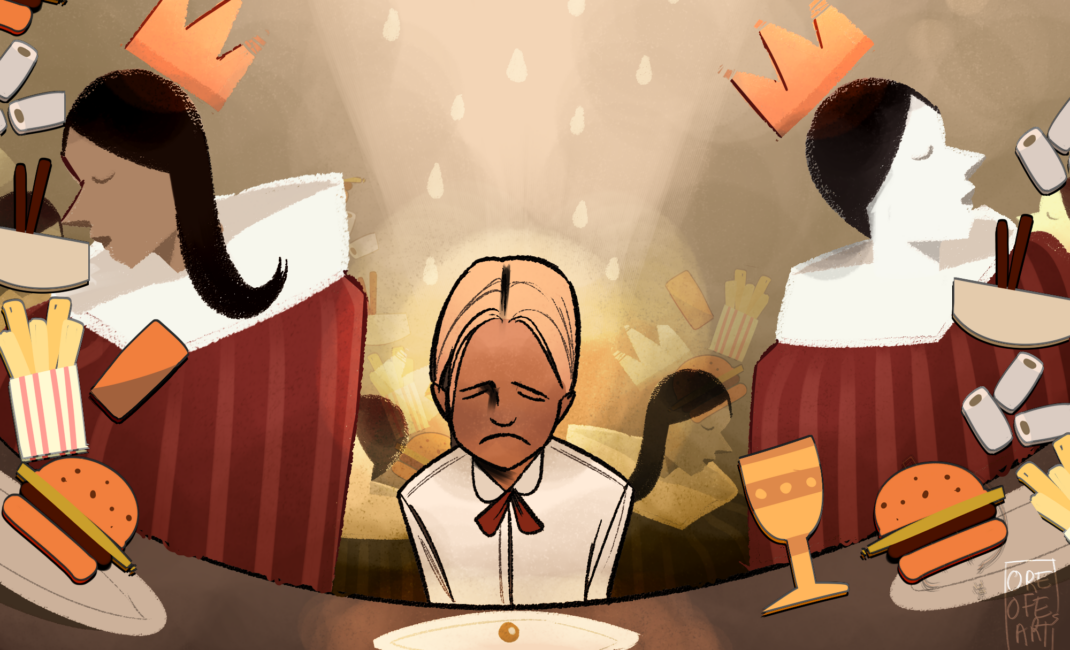
Disappointment
Between April 2020 and March 2021, the Trussell Trust gave out 2.5 million emergency food parcels. A total of 980,082 of these parcels went to children. The needs were clear.
In March 2020 the government stepped in to set up a food box scheme as a lifeline for the clinically vulnerable. But when the boxes were delivered, pictures soon appeared on social media, showing frugal parcels.
Two contractors, Bidfood and Brakes, were awarded a £208 million contract (without a tender process). They delivered boxes that had a 69% mark-up, yet did not satisfy minimum nutritional standards – which is of particular importance for those with dietary needs, such as people with cancer. Outrage and disappointment followed when pork was delivered to Muslims, while others received boxes of rotten fruit and vegetables.
And here’s what one Local Authority thinks passes for £30, five days (!!!!!) of food. Spot the difference. pic.twitter.com/HGhBDfE8L8
— Jack Monroe (@BootstrapCook) January 11, 2021
I now fear how inflation and the cost-of-living crisis will take their toll on the £2.30 daily allowance. Will students on free school meals be able to buy a basic snack or a drink like the rest of their friends?
Many of my fundamental concerns are echoed in a report that was published as far back as 2012, which stated that 33% of pupils and 40% of parents admitted embarrassment as a driving factor for not taking free school meals.
Low-income families in the UK pass up around £400 a year by not participating in the free school meals programme. Ten years later, this is still an issue and there’s no sign of change.
Schools can do something to tackle the problem. Lyng Hall School in Coventry exemplifies how a school can develop a range of food policies that encourage free school meal uptake and reduce food-related stigma. Students eligible for free school meals can use their allowance at any time throughout the school day, and any unspent money is rolled over accordingly.
The power to create meaningful, lasting change lies not with schools or celebrities but with politicians. When we look back in another 10 years’ time, what will we see?
***
The 320 Conservative MPs who voted against the extension of free school meals in the impassioned commons debate (October 2020):
Nigel Adams (Selby and Ainsty), Bim Afolami (Hitchin and Harpenden), Adam Afriyie (Windsor), Imran Ahmad Khan (Wakefield), Nickie Aiken (Cities of London and Westminster), Peter Aldous (Waveney), Lucy Allan (Telford), David Amess (Southend West), Lee Anderson (Ashfield), Stuart Anderson (Wolverhampton South West), Stuart Andrew (Pudsey), Edward Argar (Charnwood), Sarah Atherton (Wrexham), Victoria Atkins (Louth and Horncastle), Gareth Bacon (Orpington), Richard Bacon (South Norfolk), Kemi Badenoch (Saffron Walden), Shaun Bailey (West Bromwich West), Duncan Baker (North Norfolk), Steve Baker (Wycombe), Harriett Baldwin (West Worcestershire), Steve Barclay (North East Cambridgeshire), Simon Baynes (Clwyd South), Aaron Bell (Newcastle-under-Lyme), Scott Benton (Blackpool South), Paul Beresford (Mole Valley), Jake Berry (Rossendale and Darwen), Saqib Bhatti (Meriden), Bob Blackman (Harrow East), Crispin Blunt (Reigate), Peter Bone (Wellingborough), Peter Bottomley (Worthing West), Andrew Bowie (West Aberdeenshire and Kincardine), Ben Bradley (Mansfield), Karen Bradley (Staffordshire Moorlands), Graham Brady (Altrincham and Sale West), Suella Braverman (Fareham), Jack Brereton (Stoke-on-Trent South), Andrew Bridgen (North West Leicestershire), Steve Brine (Winchester), Paul Bristow (Peterborough), Sara Britcliffe (Hyndburn), James Brokenshire (Old Bexley and Sidcup), Anthony Browne (South Cambridgeshire), Fiona Bruce (Congleton), Felicity Buchan (Kensington), Robert Buckland (South Swindon), Alex Burghart (Brentwood and Ongar), Conor Burns (Bournemouth West), Rob Butler (Aylesbury), Alun Cairns (Vale of Glamorgan), Andy Carter (Warrington South), James Cartlidge (South Suffolk), William Cash (Stone), Miriam Cates (Penistone and Stocksbridge), Maria Caulfield (Lewes), Alex Chalk (Cheltenham), Rehman Chishti (Gillingham and Rainham), Jo Churchill (Bury St Edmunds), Greg Clark (Tunbridge Wells), Simon Clarke (Middlesbrough South and East Cleveland), Theo Clarke (Stafford), Brendan Clarke-Smith (Bassetlaw), Chris Clarkson (Heywood and Middleton), James Cleverly (Braintree), Thérèse Coffey (Suffolk Coastal), Damian Collins (Folkestone and Hythe), Alberto Costa (South Leicestershire), Robert Courts (Witney), Claire Coutinho (East Surrey), Geoffrey Cox (Torridge and West Devon), Virginia Crosbie (Ynys Môn), James Daly (Bury North), David T C Davies (Monmouth), James Davies (Vale of Clwyd), Gareth Davies (Grantham and Stamford), Mims Davies (Mid Sussex), Philip Davies (Shipley), David Davis (Haltemprice and Howden), Dehenna Davison (Bishop Auckland), Caroline Dinenage (Gosport), Sarah Dines (Derbyshire Dales), Jonathan Djanogly (Huntingdon), Michelle Donelan (Chippenham), Nadine Dorries (Mid Bedfordshire), Steve Double (St Austell and Newquay), Oliver Dowden (Hertsmere), Jackie Doyle-Price (Thurrock), Richard Drax (South Dorset), Flick Drummond (Meon Valley), David Duguid (Banff and Buchan), Iain Duncan Smith (Chingford and Woodford Green), Philip Dunne (Ludlow), Mark Eastwood (Dewsbury), Ruth Edwards (Rushcliffe), Michael Ellis (Northampton North), Tobias Ellwood (Bournemouth East), Natalie Elphicke (Dover), George Eustice (Camborne and Redruth), Luke Evans (Bosworth), David Evennett (Bexleyheath and Crayford), Ben Everitt (Milton Keynes North), Michael Fabricant (Lichfield), Laura Farris (Newbury), Simon Fell (Barrow and Furness), Katherine Fletcher (South Ribble), Mark Fletcher (Bolsover), Nick Fletcher (Don Valley), Vicky Ford (Chelmsford), Kevin Foster (Torbay), Mark Francois (Rayleigh and Wickford), Lucy Frazer (South East Cambridgeshire), George Freeman (Mid Norfolk), Mike Freer (Finchley and Golders Green), Richard Fuller (North East Bedfordshire), Marcus Fysh (Yeovil), Mark Garnier (Wyre Forest), Nusrat Ghani (Wealden), Nick Gibb (Bognor Regis and Littlehampton), Peter Gibson (Darlington), Jo Gideon (Stoke-on-Trent Central), Cheryl Gillan (Chesham and Amersham), John Glen (Salisbury), Robert Goodwill (Scarborough and Whitby), Michael Gove (Surrey Heath), Richard Graham (Gloucester), Helen Grant (Maidstone and The Weald), James Gray (North Wiltshire), Chris Grayling (Epsom and Ewell), Chris Green (Bolton West), Damian Green (Ashford), Andrew Griffith (Arundel and South Downs), Kate Griffiths (Burton), James Grundy (Leigh), Jonathan Gullis (Stoke-on-Trent North), Luke Hall (Thornbury and Yate), Stephen Hammond (Wimbledon), Matt Hancock (West Suffolk), Greg Hands (Chelsea and Fulham), Mark Harper (Forest of Dean), Rebecca Harris (Castle Point), Trudy Harrison (Copeland), Sally-Ann Hart (Hastings and Rye), Simon Hart (Carmarthen West and South Pembrokeshire), John Hayes (South Holland and The Deepings), Oliver Heald (North East Hertfordshire), Chris Heaton-Harris (Daventry), Gordon Henderson (Sittingbourne and Sheppey), Darren Henry (Broxtowe), Antony Higginbotham (Burnley), Damian Hinds (East Hampshire), Kevin Hollinrake (Thirsk and Malton), Philip Hollobone (Kettering), Adam Holloway (Gravesham), Paul Holmes (Eastleigh), John Howell (Henley), Paul Howell (Sedgefield), Nigel Huddleston (Mid Worcestershire), Eddie Hughes (Walsall North), Jane Hunt (Loughborough), Jeremy Hunt (South West Surrey), Tom Hunt (Ipswich), Alister Jack (Dumfries and Galloway), Sajid Javid (Bromsgrove), Ranil Jayawardena (North East Hampshire), Mark Jenkinson (Workington), Andrea Jenkyns (Morley and Outwood), Robert Jenrick (Newark), Boris Johnson (Uxbridge and South Ruislip), Caroline Johnson (Sleaford and North Hykeham), Gareth Johnson (Dartford), David Johnston (Wantage), Andrew Jones (Harrogate and Knaresborough), Fay Jones (Brecon and Radnorshire), David Jones (Clwyd West), Marcus Jones (Nuneaton), Simon Jupp (East Devon), Daniel Kawczynski (Shrewsbury and Atcham), Alicia Kearns (Rutland and Melton), Gillian Keegan (Chichester), Julian Knight (Solihull), Greg Knight (East Yorkshire), Danny Kruger (Devizes), Kwasi Kwarteng (Spelthorne), John Lamont (Berwickshire, Roxburgh and Selkirk), Robert Largan (High Peak), Andrea Leadsom (South Northamptonshire), Edward Leigh (Gainsborough), Ian Levy (Blyth Valley), Andrew Lewer (Northampton South), Brandon Lewis (Great Yarmouth), Ian Liddell-Grainger (Bridgwater and West Somerset), Chris Loder (West Dorset), Mark Logan (Bolton North East), Marco Longhi (Dudley North), Julia Lopez (Hornchurch and Upminster), Jack Lopresti (Filton and Bradley Stoke), Jonathan Lord (Woking), Craig Mackinlay (South Thanet), Cherilyn Mackrory (Truro and Falmouth), Rachel Maclean (Redditch), Alan Mak (Havant), Kit Malthouse (North West Hampshire), Anthony Mangnall (Totnes), Scott Mann (North Cornwall), Julie Marson (Hertford and Stortford), Theresa May (Maidenhead), Jerome Mayhew (Broadland), Karl McCartney (Lincoln), Mark Menzies (Fylde), Johnny Mercer (Plymouth, Moor View), Huw Merriman (Bexhill and Battle), Stephen Metcalfe (South Basildon and East Thurrock), Robin Millar (Aberconwy), Maria Miller (Basingstoke), Amanda Milling (Cannock Chase), Nigel Mills (Amber Valley), Andrew Mitchell (Sutton Coldfield), Gagan Mohindra (South West Hertfordshire), Robbie Moore (Keighley), Penny Mordaunt (Portsmouth North), David Morris (Morecambe and Lunesdale), James Morris (Halesowen and Rowley Regis), Wendy Morton (Aldridge-Brownhills), Kieran Mullan (Crewe and Nantwich), David Mundell (Dumfriesshire, Clydesdale and Tweeddale), Sheryll Murray (South East Cornwall), Andrew Murrison (South West Wiltshire), Robert Neill (Bromley and Chislehurst), Caroline Nokes (Romsey and Southampton North), Jesse Norman (Hereford and South Herefordshire), Neil O’Brien (Harborough), Guy Opperman (Hexham), Owen Paterson (North Shropshire), Mark Pawsey (Rugby), Mike Penning (Hemel Hempstead), John Penrose (Weston-super-Mare), Chris Philp (Croydon South), Christopher Pincher (Tamworth), Rebecca Pow (Taunton Deane), Victoria Prentis (Banbury), Mark Pritchard (The Wrekin), Jeremy Quin (Horsham), Will Quince (Colchester), Tom Randall (Gedling), John Redwood (Wokingham), Jacob Rees-Mogg (North East Somerset), Nicola Richards (West Bromwich East), Angela Richardson (Guildford), Rob Roberts (Delyn), Laurence Robertson (Tewkesbury), Mary Robinson (Cheadle), Andrew Rosindell (Romford), Lee Rowley (North East Derbyshire), Dean Russell (Watford), David Rutley (Macclesfield), Gary Sambrook (Birmingham, Northfield), Selaine Saxby (North Devon), Paul Scully (Sutton and Cheam), Bob Seely (Isle of Wight), Andrew Selous (South West Bedfordshire), Grant Shapps (Welwyn Hatfield), Alok Sharma (Reading West), Alec Shelbrooke (Elmet and Rothwell), David Simmonds (Ruislip, Northwood and Pinner), Chris Skidmore (Kingswood), Chloe Smith (Norwich North), Greg Smith (Buckingham), Henry Smith (Crawley), Julian Smith (Skipton and Ripon), Amanda Solloway (Derby North), Ben Spencer (Runnymede and Weybridge), Mark Spencer (Sherwood), Alexander Stafford (Rother Valley), Andrew Stephenson (Pendle), Jane Stevenson (Wolverhampton North East), John Stevenson (Carlisle), Bob Stewart (Beckenham), Iain Stewart (Milton Keynes South), Gary Streeter (South West Devon), Mel Stride (Central Devon), Rishi Sunak (Richmond (Yorks)), James Sunderland (Bracknell), Desmond Swayne (New Forest West), Robert Syms (Poole), Derek Thomas (St Ives), Maggie Throup (Erewash), Edward Timpson (Eddisbury), Kelly Tolhurst (Rochester and Strood), Justin Tomlinson (North Swindon), Michael Tomlinson (Mid Dorset and North Poole), Craig Tracey (North Warwickshire), Anne-Marie Trevelyan (Berwick-upon-Tweed), Laura Trott (Sevenoaks), Tom Tugendhat (Tonbridge and Malling), Martin Vickers (Cleethorpes), Matt Vickers (Stockton South), Theresa Villiers (Chipping Barnet), Robin Walker (Worcester), Charles Walker (Broxbourne), Jamie Wallis (Bridgend), David Warburton (Somerton and Frome), Matt Warman (Boston and Skegness), Giles Watling (Clacton), Suzanne Webb (Stourbridge), Helen Whately (Faversham and Mid Kent), Heather Wheeler (South Derbyshire), Craig Whittaker (Calder Valley), John Whittingdale (Maldon), Bill Wiggin (North Herefordshire), James Wild (North West Norfolk), Craig Williams (Montgomeryshire), Gavin Williamson (South Staffordshire), Mike Wood (Dudley South), William Wragg (Hazel Grove), Jeremy Wright (Kenilworth and Southam), Jacob Young (Redcar), Nadhim Zahawi (Stratford-on-Avon).
And one Independent MP
Julian Lewis (New Forest East).
Read more:
- How Covid worsened social exclusion and mental health outcomes for the UK’s most marginalised children
- Seeking solutions to food poverty: A journey across America
- Hungry in the school holidays: Are voluntary schemes the long-term answer?
All illustrations by Oreofe Morakinyo
